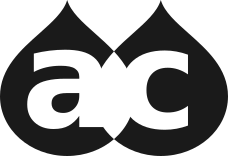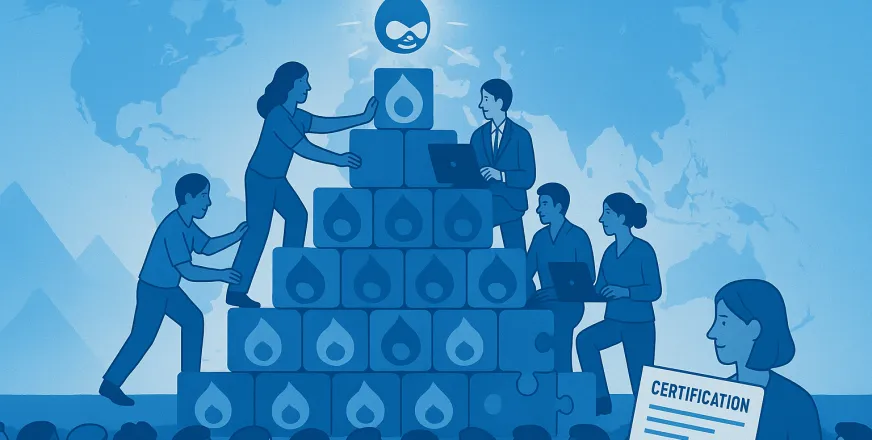The enthusiastic response to our Birds of a Feather (BOF) session on "The Future of Drupal Economy" at DrupalCon Atlanta was nothing short of inspiring. First, I want to express my sincere gratitude to everyone who took the time to attend and contribute to this critical conversation. When we had to move to a larger room to accommodate over 100 participants, it became clear that these discussions about Drupal's economic future resonate deeply with our community.
Beyond Identifying Issues: Time for Solutions
Our community knows well the challenges we face. We all recognize the issues, and now is the time to move beyond merely identifying problems to actively crafting solutions.
The strategic shifts highlighted in the Starshot (now Drupal CMS) initiative represent a pivotal moment for our ecosystem. Now, we have the opportunity to build upon this momentum and address fundamental questions about how we support and grow our economy.
Supporting the Drupal Association's Revenue Goals
I want to acknowledge the Drupal Association's critical need for sustainable revenue streams. The DA faces the challenging task of supporting our infrastructure, organizing events, and guiding initiatives like Drupal CMS - all while balancing the community's needs with financial realities.
We find ourselves in an interesting position: we need large agencies' substantial support now to help the DA reach its goals of expanding the Certified Partner program and increasing revenue. However, the long-term vision should be creating self-sustaining systems where this intense dependency becomes less necessary.
It's encouraging to see the DA taking a more active leadership role in this space. The community's evolving perspective has allowed the DA to expand beyond just maintaining Drupal.org and organizing DrupalCon. This shift represents an important evolution that deserves our support.
Community-Driven Solutions
I'd like to propose several concrete solutions that could transform Drupal's ecosystem while supporting the DA's revenue goals:
1. Regionalized Official DrupalCons
As I mentioned during the Atlanta board meeting, Latin America is ready to support regional DrupalCon events. These events should test more business-oriented approaches alongside their developer focus, without abandoning the heart of the event as a time to work together on the project.
Regional events can serve as powerful business development platforms when structured to connect service providers with potential clients in their economic context.
These events would acknowledge the different economic realities across regions. What constitutes a "small," "medium," or "enterprise" project varies dramatically between markets. Adapting the DrupalCon model to regional needs creates opportunities for businesses of all sizes in their appropriate economic contexts.
2. Drupal.org as the Source of Truth
Drupal's contribution credit system is already unique in the open source world for how it tracks and attributes various forms of contribution. We should build upon this foundation to position Drupal.org as the definitive source of truth for everything Drupal-related. From identifying qualified developers to finding appropriate partner agencies, Drupal.org should be the central hub.
When businesses need Drupal expertise, Drupal.org should be their first destination. Not third-party job boards. Not general search engines. This transition creates natural economic incentives for contribution while connecting clients with service providers who have demonstrated their commitment to the project.
This would also significantly enhance the value of the Certified Drupal Partner program. The DA would now have something valuable to offer partners: qualified leads from businesses looking for Drupal expertise.
3. Community-Driven Certification Framework
Here's where I see tremendous potential: I believe a community-led certification system could be transformative for positioning Drupal.org as the central hub for Drupal expertise. But importantly, this must start as a community initiative rather than immediately becoming a DA responsibility.
This idea comes from my personal experience in education. Before joining the Drupal world, I worked as a certified bilingual elementary teacher in Texas for three years, teaching 5th grade Science. I saw firsthand how the Texas Essential Knowledge and Skills (TEKS) framework created clarity around educational standards. For example, a kindergarten math standard might simply state: "The student can count forward from 1 to 20 with and without objects." This clear standard defines exactly what skill the student should demonstrate.
Similarly, we could establish a framework of Drupal knowledge and skills. A site builder certification might include standards like "The developer demonstrates ability to configure content types and fields to model complex data relationships." A security standard might state "The developer applies security best practices when configuring user roles and permissions."
I envision three certification levels (Beginner, Intermediate, Advanced) across four areas. We would have Backend Developer standards. Frontend Developer standards. Site Builder standards. And Developer standards focusing on development processes like local development, git workflows, agile, best practices, and contribution knowledge.
From these standards, we could develop community-curated question banks for each knowledge area. We could create assessment methodologies that validate both theoretical understanding and practical application. And we could build clear pathways for skills progression from entry-level to expert.
We've seen many training initiatives struggle in the past. I tried to help Drupaleros before it was dissolved. I've spoken with the maintainer of the previous Open Curriculum initiative that ultimately stagnated. Learning from these experiences, I believe focusing on standards rather than specific training content gives us a stronger foundation. We can reinvigorate the Open Curriculum as a standards framework rather than trying to create and maintain all the training content ourselves.
Similar to how the contribution credit system was developed through community committees, we could establish a committee to maintain the question bank. This committee would ensure the certification's value isn't diminished through widespread distribution of questions.
A Sustainable Path Forward
This approach lets the DA adopt a proven certification system later without carrying the development costs now. The community does the groundwork, the DA gets a working solution.
Once proven effective, this certification system could provide a sustainable revenue source for the DA while delivering genuine value to both the community and clients. It creates a self-reinforcing cycle. Developers gain credible validation of their skills. Companies find qualified talent more efficiently. Clients identify appropriate service providers with greater confidence. The DA receives ongoing certification revenue. The entire ecosystem benefits from higher quality standards.
Join the Discussion
I want to emphasize that these are just ideas that I'm putting forward for community discussion. I don't believe I have all the answers, and the best solutions will come from our collective wisdom and experience.
What's critically important here is that this cannot become a DA responsibility at this stage. The Drupal Association needs to maintain its focus on current revenue strategies and sustainability goals. They have a clear roadmap for growing the Certified Partner program and increasing financial stability. Adding a new, unproven initiative now would risk distracting from these essential priorities.
Instead, this needs to be a true community initiative that develops, tests, and refines a certification framework independently. Only after proving its value and sustainability should we consider how it might integrate with the DA's offerings.
I'm committed to helping build this framework, but it requires a collaborative community effort if you want to contribute to this initiative. Whether through defining knowledge domains, developing assessment methodologies, or testing the framework. Please reach out.
Together, we can create a system that strengthens Drupal's position as a leading CMS while creating sustainable economic opportunities across our entire ecosystem pyramid.
What are your thoughts on this approach? Do you see additional ways we could position Drupal.org as the central hub for Drupal expertise? I'd love to continue this conversation.


Add new comment